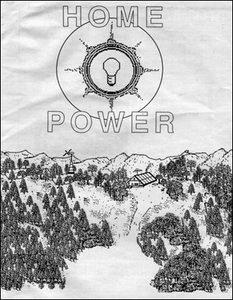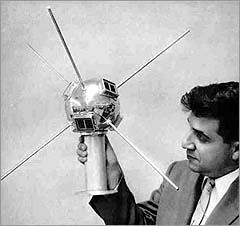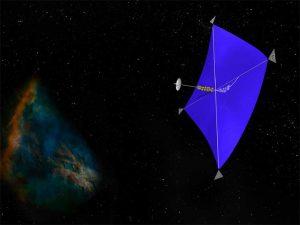CNN recently did a nice piece on Brooklynphono! The PAST is the FUTURE of music!
Solar Ricardo

Friday, November 28, 2014
Thursday, November 27, 2014
E-Prime Week: E-Prime and Non-Violent Communications
Some here in the US of A get together with family and friends today for Thanksgiving. Many enjoy it. Some...do not. This obligatory face-time can be stressful, and can lead to conflict, or worse, creepy, smiley passive aggressive behavior. It's a great time for relatives to take cheap shots at your non-traditional lifestyle. But you don't have to take part in the weirdness! Break the cycle of snark!!
E-Prime Week gives us the opportunity to start the holiday season off with just a little less conflict, and Non-Violent Communication (NVC) can be a good addition to your semantic toolkit. Here are links to a couple of links to articles to help you tune up your communications skills and invite a little less ire, and a little more "irie!
E-Prime Week gives us the opportunity to start the holiday season off with just a little less conflict, and Non-Violent Communication (NVC) can be a good addition to your semantic toolkit. Here are links to a couple of links to articles to help you tune up your communications skills and invite a little less ire, and a little more "irie!
Labels:
#eprimeweek,
Anarchism,
E-Prime,
Robert Anton Wilson,
Semantics,
Writing
Wednesday, November 26, 2014
Solar Values = American Values
“By the way, if you want to have a war over oil, leave me out of it- because I don’t think we need it. All I have to say is, go solar! Go wind! Let a little freedom into your life, and help your neighbors stay free, too.”
Richard Perez, Publisher, Home Power Magazine- keynote address, I-Renew Energy Expo, Sept.8, 2001
 |
| Home Power #1: 1987 |
E-Prime: It's not for (Semantic) Wimps! OR E-Prime: (Semantic) Wimps may not find it to their liking!
Okay! Speaking E-Prime for a whole week can be harder than one might think! Yes, it may be! Or maybe it really is!
"To Be" in Their Bonnets
A matter of semantics
 A few days ago I opened up a recent issue (Volume 48, Number 2) of Et cetera,
the quarterly journal of the International Society for General
Semantics, and within a few minutes of doing so got a bit of a surprise.
The surprise came from an article by Emory Menefee, a former president
of the ISGS, which bluntly calls into question attempts by many society
members to promote something called E-Prime, a form of English that has
for years ranked extremely high among the interests of the
general-semantics community. Advocates of E-Prime, for reasons I'll come
to, favor the elimination in English of every form of the verb "to be"—be, been, is, am, are, was, were, 'm, 's, 're,
and all the rest. They not only promote E-Prime as a theoretical
proposition but also try in daily life to erase to be and its
inflections from everything they write. The most committed advocates use
E-Prime even when they talk. Given all this, to see the E-Prime
endeavor criticized in an official organ— to see that endeavor, indeed,
termed "quixotic"—naturally raised an eyebrow. When I queried the
International Society for General Semantics about the matter, the
executive director, Paul Dennithorne Johnston, assured me that the
society never did, and does not now, regard E-Prime as tantamount to
some sort of "party line." Well, fine. But it has strong support among
the nomenklatura, and I do not expect them to hold their peace.
A few days ago I opened up a recent issue (Volume 48, Number 2) of Et cetera,
the quarterly journal of the International Society for General
Semantics, and within a few minutes of doing so got a bit of a surprise.
The surprise came from an article by Emory Menefee, a former president
of the ISGS, which bluntly calls into question attempts by many society
members to promote something called E-Prime, a form of English that has
for years ranked extremely high among the interests of the
general-semantics community. Advocates of E-Prime, for reasons I'll come
to, favor the elimination in English of every form of the verb "to be"—be, been, is, am, are, was, were, 'm, 's, 're,
and all the rest. They not only promote E-Prime as a theoretical
proposition but also try in daily life to erase to be and its
inflections from everything they write. The most committed advocates use
E-Prime even when they talk. Given all this, to see the E-Prime
endeavor criticized in an official organ— to see that endeavor, indeed,
termed "quixotic"—naturally raised an eyebrow. When I queried the
International Society for General Semantics about the matter, the
executive director, Paul Dennithorne Johnston, assured me that the
society never did, and does not now, regard E-Prime as tantamount to
some sort of "party line." Well, fine. But it has strong support among
the nomenklatura, and I do not expect them to hold their peace. Monday, November 24, 2014
Happy E-Prime week, Everybody!!!
 (Hey Everybody! If you haven't already read it, you must get a copy of this book. Along with RAW's other writings, this one really redecorated my reality tunnel. Enjoy it, and please, help spread the word about National E-Prime Week!)
(Hey Everybody! If you haven't already read it, you must get a copy of this book. Along with RAW's other writings, this one really redecorated my reality tunnel. Enjoy it, and please, help spread the word about National E-Prime Week!)
From Quantum Psychology
published by New Falcon Press
E and E-Prime
In 1933, in Science and Sanity, Alfred
Korzybski proposed that we should abolish the "is of identity" from the
English language. (The "is of identity" takes the form X is a Y. e.g.,
"Joe is a Communist," "Mary is a dumb file-clerk," "The universe is a
giant machine," etc.) In 1949, D. David Bourland Jr. proposed the
abolition of all forms of the words "is" or "to be" and the Bourland
proposal (English without "isness") he called E-Prime, or English-Prime.
A few scientists have taken to writing
in E-Prime (notable Dr. Albert Ellis and Dr. E.W. Kellogg III).
Bourland, in a recent (not-yet-published) paper tells of a few cases in
which scientific reports, unsatisfactory to sombunall members of a
research group, suddenly made sense and became acceptable when
re-written in E-Prime. By and large, however, E-Prime has not yet caught
on either in learned circles or in popular speech.
Labels:
#eprimeweek,
Anarchism,
E-Prime,
Pop Culture,
Robert Anton Wilson,
Science Fiction,
Semantics,
Writing
Saturday, November 22, 2014
Let's Celebrate National E-Prime Week!
HIP-HIP...!!...I
said...HIP-HIP...hoo-ray.....
Okay, so maybe I'm
alone in this endeavor, but I think that the fourth week in November
is the perfect time to do a little annual semantic experiment. Hear
me out! You may actually agree with this. But first, I know you may wonder: “What the FUCK is E-Prime?”
E-Prime emerged from
the study of General Semantics in the early 1960s. Alfred Korzybski,
the “Father of General Semantics” found that the word “is,”
and all of the other derivatives of “to be,” suffer from
structural problems and lack validity. For instance, the statement
“this song is horrible” can be completely subjective. Even the
statement “The sky is blue” may not necessarily be accurate.
David Bourland, a
student of Korzybski, suggested that a more accurate method of
communication might completely eliminate be, am, is, are, was,
were, been and
being. Bourland
pointed out that by using this method, which he called “E-Prime”
or “English Prime,” language can become less dogmatic. “This song
is terrible” becomes “I don't like this song” and “the sky is
blue” becomes “the sky looks blue to me,” therefore, inviting
discussion rather than conflict.
So,
why do I think that we need to celebrate this obscure academic
exercise each year during the fourth week of November? THANKSGIVING,
yo! Because, this week, due to some societally enforced ritual, many of us find
ourselves occupying the same space for
an extended period of time
with other spawn of our hereditary genetic pool, some of whom may
have very different outlooks on life than we do. Let's face it, “IS” can be a semantic chip on our shoulder, one that invites
alcohol-addled ancestors,
cro-magnon cousins and
other kooky kin to knock it off. What better time to practice a
little non-confrontational
thought experiment?
Labels:
Anarchism,
Art,
DIY,
E-Prime. Robert Anton Wilson,
Feral,
Pop Culture,
Semantics,
Writing
Friday, November 21, 2014
"Futurists" and the Future of Solar Energy
"Their predictions range from near-term to long-term, from the mundane to the fantastic, but many futurists, regardless of their focus, see solar power in our future."
In the realm of science fiction, solar has long played a role as a primary energy source in imaginary futures. Ever since Dr. Hans Zeigler outfitted satellite Vanguard 1 with photovoltaic panels back in 1958, solar energy has sparked writers imaginations. From the solar space-yachts of Aurthur C. Clarke's Sunjammer to the horrific solar-powered swarms of killer “nano-bots” in Michael Crichton's Prey, solar energy production is a technology that speculative fiction writers have always seen as part of our future. But what about the people who's job it is to PREDICT the future, rather than imagine it? What do “Futurists” think about the role solar energy will play in the coming century?

Futurists, sometimes called “Futurologists” are those social scientists, economists and others analysts who spend their time examining current trends and studying future scenarios. They may work for governments, corporations and other organizations. They may be academics, business consultants, journalists or bloggers, and their focus may vary from economics to technology to human relationships, but most take an interdisciplinary approach to predicting the future. Their predictions range from near-term to long-term, from the mundane to the fantastic, but many futurists, regardless of their focus, see solar power in our future.
Read the entire article at Solar Tribune.
In the realm of science fiction, solar has long played a role as a primary energy source in imaginary futures. Ever since Dr. Hans Zeigler outfitted satellite Vanguard 1 with photovoltaic panels back in 1958, solar energy has sparked writers imaginations. From the solar space-yachts of Aurthur C. Clarke's Sunjammer to the horrific solar-powered swarms of killer “nano-bots” in Michael Crichton's Prey, solar energy production is a technology that speculative fiction writers have always seen as part of our future. But what about the people who's job it is to PREDICT the future, rather than imagine it? What do “Futurists” think about the role solar energy will play in the coming century?

Futurists, sometimes called “Futurologists” are those social scientists, economists and others analysts who spend their time examining current trends and studying future scenarios. They may work for governments, corporations and other organizations. They may be academics, business consultants, journalists or bloggers, and their focus may vary from economics to technology to human relationships, but most take an interdisciplinary approach to predicting the future. Their predictions range from near-term to long-term, from the mundane to the fantastic, but many futurists, regardless of their focus, see solar power in our future.
Read the entire article at Solar Tribune.
Labels:
Futurist,
Kurzweil,
Science Fiction,
Solar,
Sovryn
Wednesday, November 19, 2014
Libertarianism, Anarchism and Ecology!!!
I had the distinct pleasure of being a guest on the Sovryn Tech podcast, with Brian Sovryn and Dr. Stephanie Murphy. We talk energy, agriculture, and why Statism isn't helping to save the planet...
Subscribe to:
Comments (Atom)

